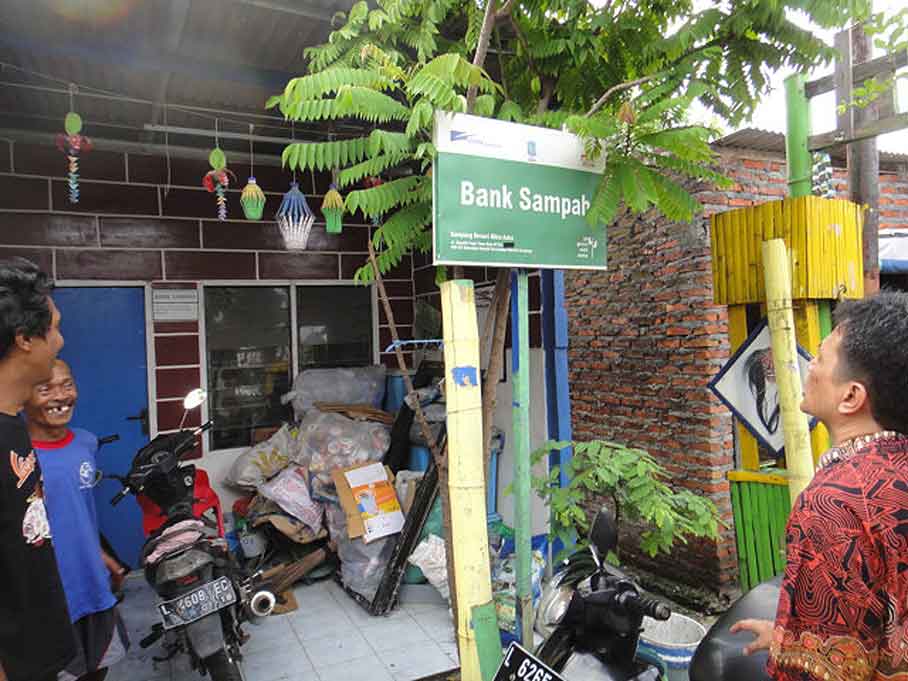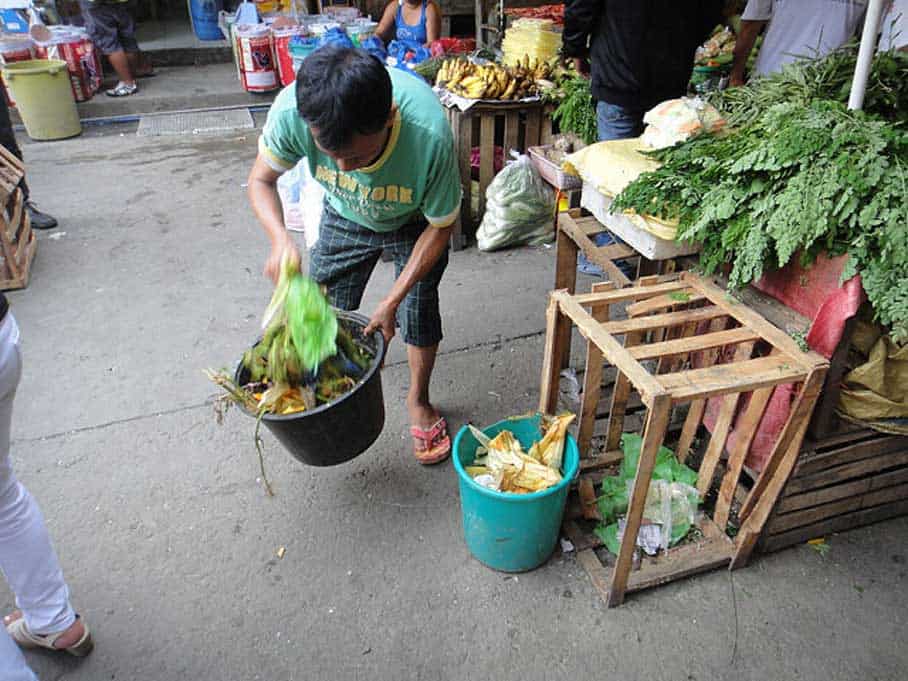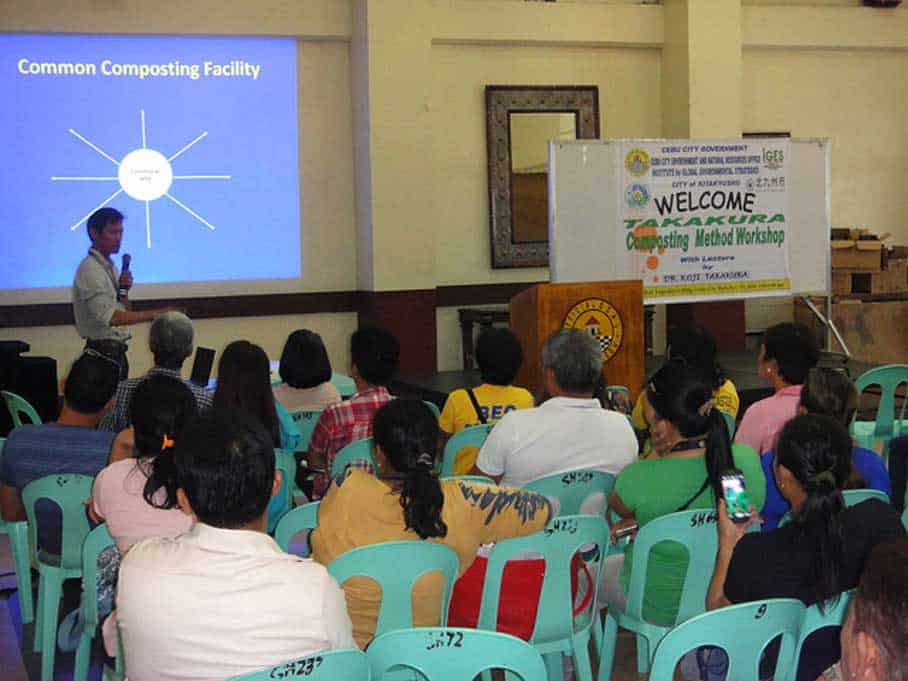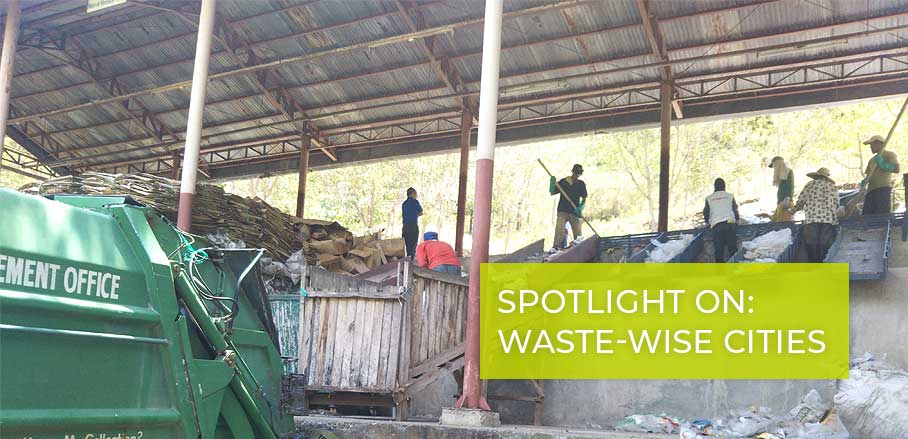Sustainable Integrated Waste Management: Aiming at the Source Rather than the End
To achieve sustainable integrated waste management, municipalities need to move away from end-of-pipe approaches. What is rather needed are softer approaches that set incentives for sustainable waste management at an early stage of waste handling.
The significance of environmentally sound waste management for achieving sustainable consumption and production as well as a pollution free planet was one of the key priorities discussed at the recently concluded United Nations Environment Assembly (UNEA4) in Nairobi. Recognising the co-benefits of sustainable waste management to meet the sustainable development goals (SDGs) and Paris Climate Agreement, UNEA4 invited national governments to promote integrated waste management policies and strategies in cooperation with regional and international agencies.
However, the meaningful implementation of these national policies at the local level is a very challenging issue for many local governments whose resources and technical capacities are limited. The increasing waste volume and its diversity make sustainable waste management even more challenging for developing countries and their cities.
Cities to Learn from
How can cities successfully introduce integrated waste management systems that reduce the amount of waste at the source rather than focusing on technical end-of-cycle applications? We looked at four cities in South-East Asia, which all show remarkable success in reducing the volume of waste by engaging different stakeholder groups.
Common strategies of all cities are setting waste reduction targets, introduction of waste separation and prevention activities at source, decentralised waste collection, establishment of recycling and composting to divert organic waste from landfills, polluter pay principles, integration of informal/small and medium enterprises, public education, and passing of relevant local legislations.
| Case Study City | Waste reduction achieved |
|---|---|
| (1) Cebu, Philippines | 30% during the period of 2010-2012 |
| (2) San Carlos, Philippines | 60% during the period of 2005-2018 |
| (3) Surabaya, Indonesia | 37% during the period of 2005-2011 |
| (4) Seoul, South Korea | 68% during the period of 1992-2015 |
Cebu and San Carlos, Philippines
All our case study cities have introduced measures for separated waste collection. Cebu and San Carlos developed 10-year Waste Management Plans including reduction targets. In addition, both cities established city ordinances to introduce mandatory waste segregation at source, including penalties for violations and a special fund for incentives. Both cities strictly enforce a ‘No Segregation, No Collection” policy and encourage the barangays (the lowest level of administrative and political units) to process recyclables and biodegradable waste. Only residual waste is mandated to be transported to final disposal sites.
Surabaya, Indonesia and Seoul, South Korea
Similarly, the city of Surabaya mandated community-based organisations to manage primary waste collection and the handling of biodegradable waste and recyclable materials through the creation of decentralised composting facilities and Waste Banks.

© Premakumara Jagath Dickella Gamaralalage
In Seoul, the Act on Promotion of Saving and Recycling of Resources has made waste separation and domestic recycling mandatory. Recyclables such as plastic, styrofoam, glass, and cardboard have to be disposed at designated recycling stations at the residential level. Housing complexes put in place systems that rely heavily on the cooperation of residents.
Organic Waste
Considering that organic components represent a large volume and carry high environmental impacts at landfills, all cities have introduced actions to reduce levels of food waste from households, markets, and shopping malls, including organic waste collection and treatment systems.
For example, Surabaya City owns and operates about 20 decentralised composting facilities that produce compost from 500 tons of waste per month. In both Cebu and San Carlos, the majority of barangays have established their own composting centres to manage organic waste. In addition, San Carlos has a central composting facility to handle the organic waste coming from market and business districts. The final products from these facilities are used for urban farming and city greening.

© Premakumara Jagath Dickella Gamaralalage
Indispensable: An Environmentally Aware Population
However, developing strategies and setting targets and legislation in itself was no magic bullet in implementing integrated waste management. Recycling and waste reduction rates did not improve overnight. For the successful implementation of the improved waste management, all cities adopted strategies for public education, incentives, and enforcement methods. They recognised that the success of the new programmes depends on the level of environmental awareness among its community to ensure their active participation.
For example, San Carlos conducted a four-year education programme to enable people to follow the new waste management system. Seoul has introduced the Volume Based Waste Management fee system on a “pay as you throw” basis to highlight the economic value of waste.
All cities introduced incentives to encourage community participation and actions. For example, the Cash from Trash Programme in Cebu and Waste Banks in Surabaya encourage community groups to gather recyclable waste and bring it to the collection site for sale. In Seoul, revenue from the sale of recyclables was channelled back into the community via apartment management offices and neighbourhood administrations.
Cebu, San Carlos, and Surabaya have community award systems that recognise outstanding green and clean communities. In addition, cities introduced monitoring mechanisms such as in Seoul, where recycling stations were regularly monitored to prevent dumping of domestic waste along with recyclables. In Cebu, random checks were conducted by the Cebu Environmental and Sanitation Team and penalties were introduced against offenders.
These examples show that establishing integrated waste management systems to boost domestic recycling rates and reduce landfilled waste is neither an easy task nor does it happen overnight. Critical to success are not merely technical solutions and heavy investments, but also “softer” means like engaging relevant stakeholders and building their sense of ownership of the implemented measures.

© Premakumara Jagath Dickella Gamaralalage
This means sharing information with residents and involving them in the process as well as developing a culture of recycling and upcycling. In this vein, cities can strengthen their recycling and waste reduction culture by extending the responsibility for waste management to consumers and producers, creating shared value between public and private groups and constantly engaging and consulting them.
